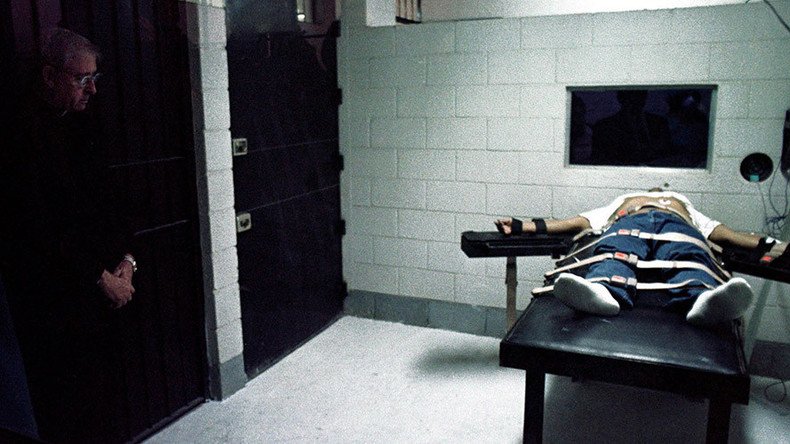No refills: Last remaining Arkansas death penalty drugs expire soon

After waiting 11 years to die, 35 death row inmates in Arkansas are likely to be around for even longer. The state’s lethal injection supply of potassium chloride is set to run out by January 1, 2017.
Arkansas has not had an execution since 2005, due to legal problems centered around their lethal drugs.
In 2015, Governor Asa Hutchinson (R) set execution dates for eight death row inmates, but they were put on hold until the state Supreme Court decided on the legality of the state’s secrecy law.
Nine inmates challenged the state's secrecy law, arguing that Arkansas was violating the Eighth Amendment of the US Constitution by not revealing the maker, seller and other information about the drugs used in executions. Due to a previous botched execution in Oklahoma, they also argued that one of the drugs, midazolam, failed to properly block pain receptors, which lead to “cruel and unusual” executions.
On June 23, the Arkansas Supreme Court voted 4-3 to uphold the state’s secrecy policy, enabling the state to continue concealing information about the drugs used in executions.
#Florida Supreme Court orders 150 death row inmates be resentenced https://t.co/LBAZ9y22Lspic.twitter.com/mpfY6Xkc8A
— RT America (@RT_America) December 23, 2016
However, this was just after the press discovered that the state had obtained lethal drugs from a subsidiary of Pfizer.
RT reported on Pfizer declaring its opposition to using their products in executions, citing their website at the time, which stated: "Pfizer makes its products to enhance and save the lives of the patients we serve. Consistent with these values, Pfizer strongly objects to the use of its products as lethal injections for capital punishment."
Since then, many pharmaceutical companies in the US have decided to stop selling lethal drugs to states with capital punishment, and many regulations in Europe have made it hard for states to import any of the necessary drugs for lethal injections.
As pharmaceutical companies continue to make lethal drugs difficult to obtain, states have resorted to alternative sources, but they are not having much luck. The American Pharmacists Association came out with a statement discouraging its members from selling lethal drugs to states for their executions, saying, “Such activities are fundamentally contrary to the role of pharmacists as providers of health care.”
U.S. ends year with fewest executions since 1991- but the death penalty remains on the books in 31 states. https://t.co/0bmjF91tkO
— arianna jones (@ariannaijones) December 28, 2016
Without a path to buy lethal drugs, the number of executions has reached its lowest point in a quarter-century, according to a year-end study from the Death Penalty Information Center. The study finds that executions went from a high of 98 in 1998, to only 20 in 2016. This year also saw the fewest death penalty sentences since 1972, when the US Supreme Court case of Furman v. Georgia led to a four-year-long moratorium on capital punishment sentencing.
Roughly 30 death sentences handed out in 2016, down 90% since '96. Executions totaled 20 w/ 9 in Georgia & 7 in TX https://t.co/b10LOaGNzxpic.twitter.com/v5QsAs7jHa
— RT America (@RT_America) December 21, 2016












